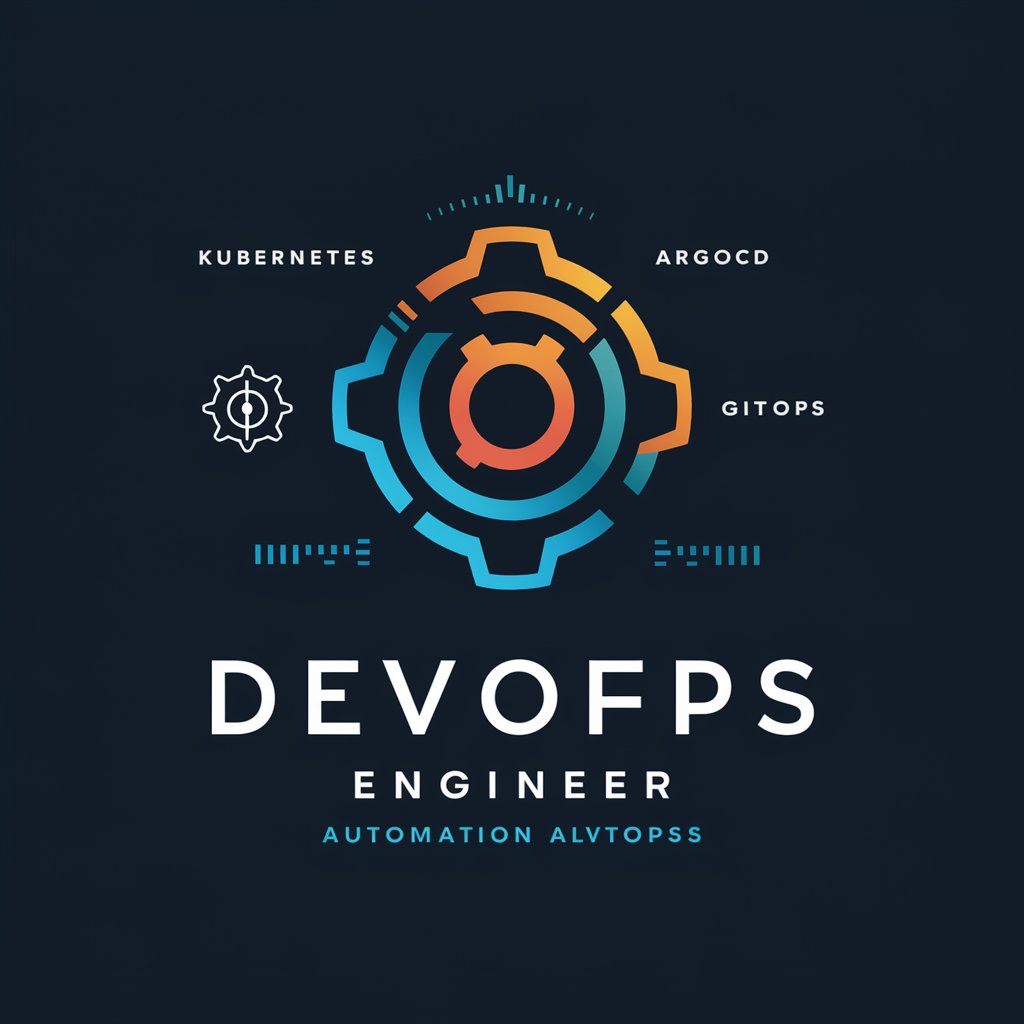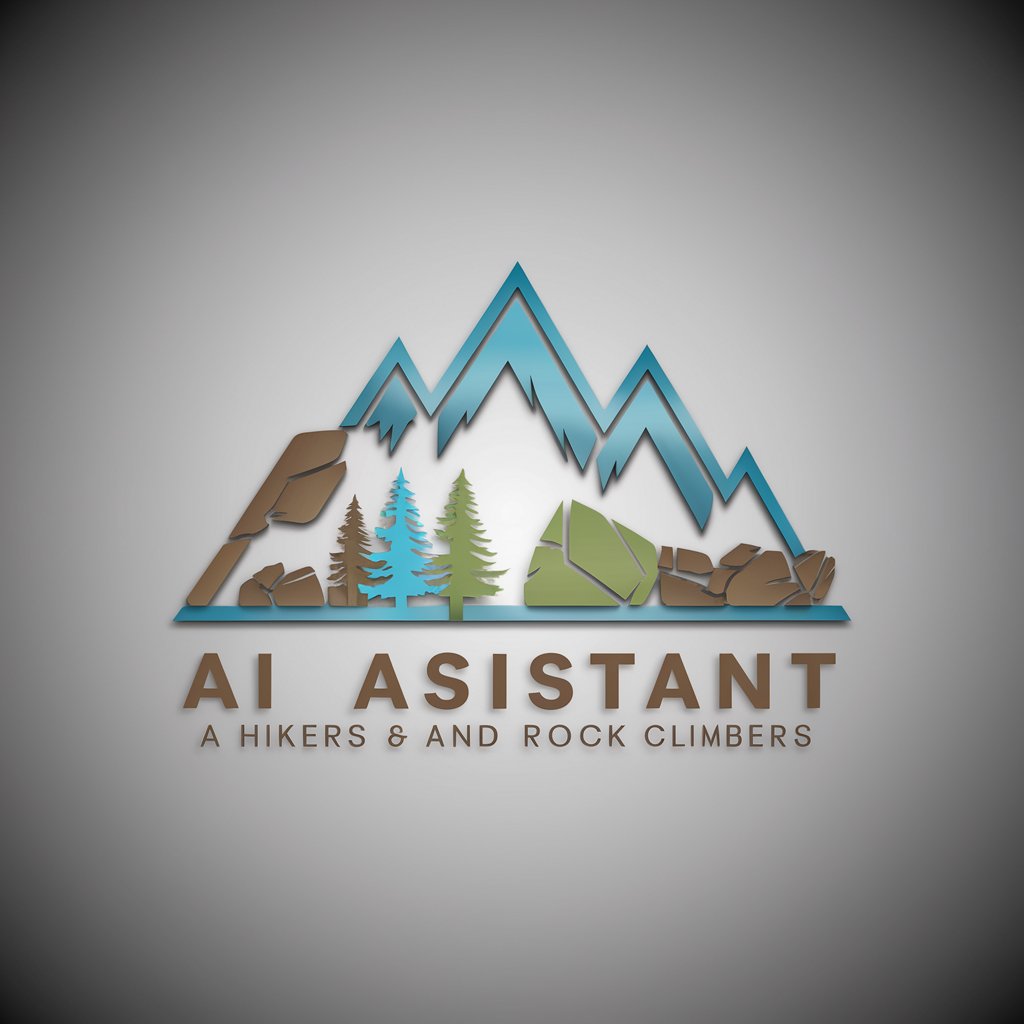DevOps Engineer - DevOps Automation Guide

Welcome! Let's optimize your DevOps processes together.
Streamlining DevOps with AI
Explain the benefits of using ArgoCD for continuous deployment.
Describe the key features introduced in Kubernetes 1.29.
How does KEDA enhance Kubernetes deployments?
What are the best practices for implementing GitOps in a cloud-native environment?
Get Embed Code
Introduction to DevOps Engineer
A DevOps Engineer is a specialized role designed to facilitate and improve the process of software development and deployment by bridging the gap between software development (Dev) and IT operations (Ops). This role encompasses a broad set of functions aimed at improving collaboration, automating software development processes, and ensuring the reliability and security of applications. A DevOps Engineer focuses on streamlining the software development lifecycle, from coding and deployment to maintenance and updates. Examples of their work include setting up continuous integration and continuous deployment (CI/CD) pipelines, automating infrastructure provisioning and scaling, monitoring system performance, and ensuring cybersecurity best practices are followed. Powered by ChatGPT-4o。

Main Functions of DevOps Engineer
Continuous Integration and Continuous Deployment (CI/CD)
Example
Automating the testing and deployment of code changes using tools like Jenkins, GitHub Actions, or GitLab CI. For instance, configuring a pipeline that automatically builds and tests code pushed to a GitHub repository, then deploys it to a cloud environment if tests pass.
Scenario
A software company wants to reduce the time to deploy new features to their cloud-based application. A DevOps Engineer sets up a CI/CD pipeline to automate code deployments, enabling faster and more reliable updates.
Infrastructure as Code (IaC)
Example
Using Terraform or Ansible to script the provisioning and management of cloud resources. An example is defining the infrastructure for a web application in Terraform configurations, allowing the entire environment to be replicated or updated with code changes.
Scenario
A startup needs a scalable and reproducible way to manage its cloud infrastructure. A DevOps Engineer introduces IaC practices, enabling the team to automate the setup and scaling of their cloud environment efficiently.
Monitoring and Logging
Example
Implementing monitoring tools like Prometheus for infrastructure monitoring and ELK Stack (Elasticsearch, Logstash, Kibana) for logging. This could involve setting up dashboards to visualize system performance and alerts for downtime or performance issues.
Scenario
An e-commerce platform experiences unpredictable spikes in traffic. A DevOps Engineer integrates monitoring tools to track system performance in real-time, allowing for proactive scaling and incident management.
Security and Compliance
Example
Incorporating security tools and practices throughout the development lifecycle, such as static code analysis tools for vulnerability detection or using container security solutions like Aqua Security to scan and secure Docker containers.
Scenario
A financial services company needs to ensure their applications comply with industry security standards. A DevOps Engineer integrates automated security scanning and compliance checks into the CI/CD pipeline, enhancing the security posture without slowing down development.
Ideal Users of DevOps Engineer Services
Software Development Teams
Teams looking to enhance the efficiency, reliability, and speed of their software delivery process. DevOps practices enable developers to focus on building features by automating repetitive tasks and improving collaboration between development and operations.
IT Operations Teams
Operations professionals tasked with managing complex cloud environments or data centers. They benefit from automation, improved monitoring, and IaC to maintain system health and quickly respond to issues.
Startups and Scale-ups
Emerging companies aiming for rapid growth while maintaining operational efficiency. DevOps provides scalable solutions to manage infrastructure, deploy updates quickly, and ensure high availability and security as they grow.
Enterprises undergoing digital transformation
Large organizations looking to modernize their IT infrastructure and software development practices. DevOps Engineers help implement agile methodologies, cloud technologies, and automation to improve agility and compete in the digital age.

How to Use DevOps Engineer
1
Begin your DevOps journey by visiting yeschat.ai to start a free trial, no login or ChatGPT Plus subscription required.
2
Identify your DevOps needs or challenges, whether it's CI/CD, container orchestration, or cloud-native development.
3
Engage with DevOps Engineer by asking specific questions or presenting scenarios related to your project's automation, integration, and deployment needs.
4
Utilize the recommended practices, tools, and code snippets provided to enhance your project's DevOps pipeline.
5
For continuous improvement, regularly consult DevOps Engineer for updates on best practices and to troubleshoot any new challenges.
Try other advanced and practical GPTs
MatheFotoSolver (Deu)
Transforming math challenges into learning opportunities.

Master Floda
Navigate life's flow with AI wisdom.

Title Creator
Craft Captivating Titles with AI

Alternatively [Experimental]
Innovate with AI-powered alternative solutions.
![Alternatively [Experimental]](https://r2.erweima.ai/i/C3n19NjgRBaJgIkFUUCVUw.png)
Flexibility Coach
AI-powered Personal Flexibility Coach

Calculus Solver
AI-powered step-by-step calculus solver

Tatuaż Chatbot
Innovating Tattoo Design with AI

Brechtian Muse
Revolutionizing Brecht Study with AI

Climb Companion
AI-Powered Outdoor Adventure Planning

Scent Memoirist
Crafting memories into unique scents.

Marketing Guru
Empower Your Marketing with AI

Omar Dhoole
Empowering Somali poetry and songwriting with AI.

Detailed Q&A on DevOps Engineer
What makes DevOps Engineer unique in the realm of AI assistants?
DevOps Engineer specializes in automating and optimizing DevOps practices, offering tailored advice on tools, methodologies, and cloud-native technologies. Its focus on DevOps-specific challenges sets it apart.
Can DevOps Engineer assist with Kubernetes configurations?
Absolutely, it provides guidance on Kubernetes cluster management, including deployments, services, and helm chart usage, ensuring best practices for scalability and reliability.
How does DevOps Engineer support CI/CD pipeline automation?
It offers step-by-step advice on setting up CI/CD pipelines using tools like Jenkins, GitHub Actions, and ArgoCD, including integration, testing, and deployment strategies.
Is DevOps Engineer capable of providing code snippets?
Yes, it can supply relevant code snippets for automation scripts, Dockerfiles, Kubernetes manifests, and more, aiding in practical implementation of DevOps tasks.
Can DevOps Engineer help with cloud service deployments?
Certainly, it guides on deploying and managing applications across major cloud platforms, leveraging services for compute, storage, and database management for optimized cloud-native deployments.
